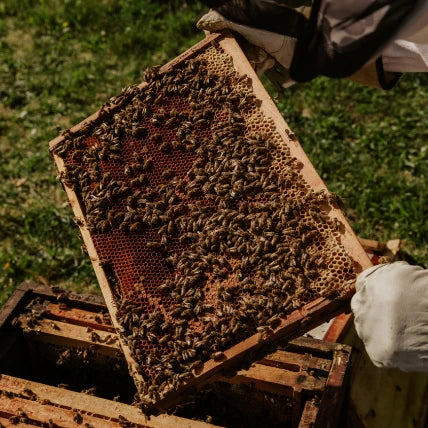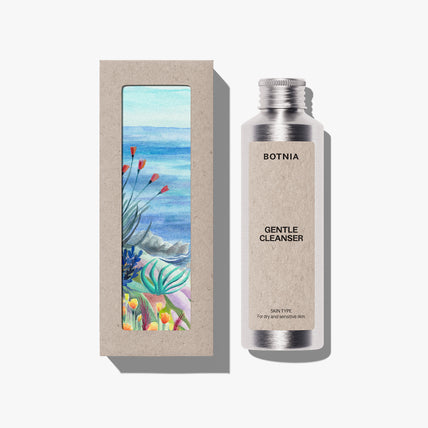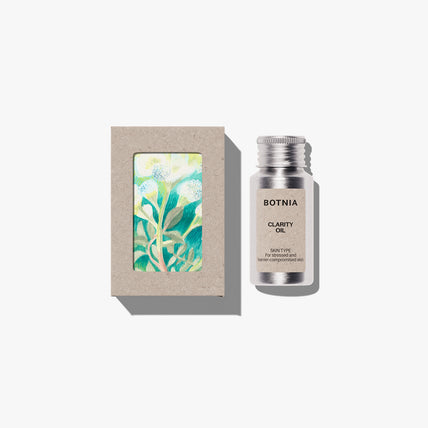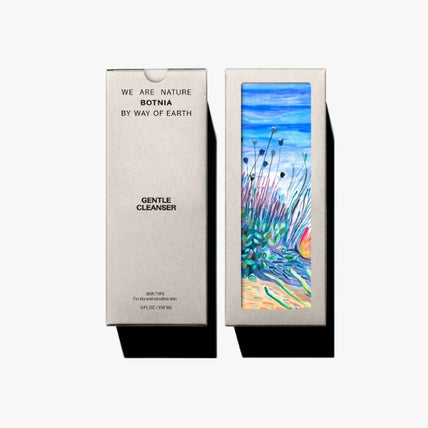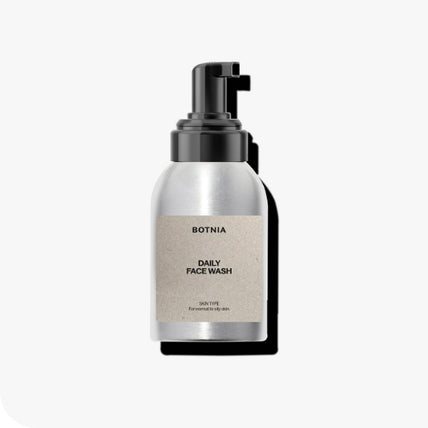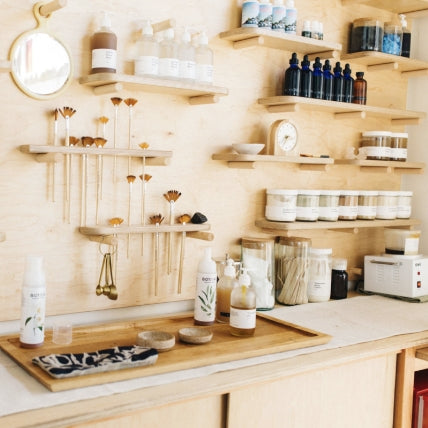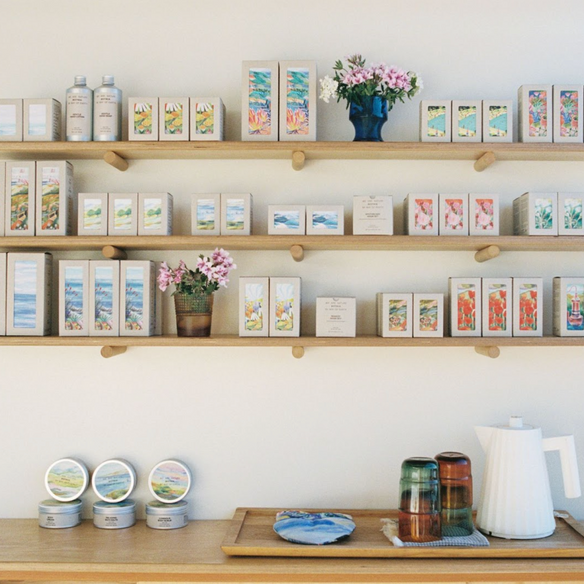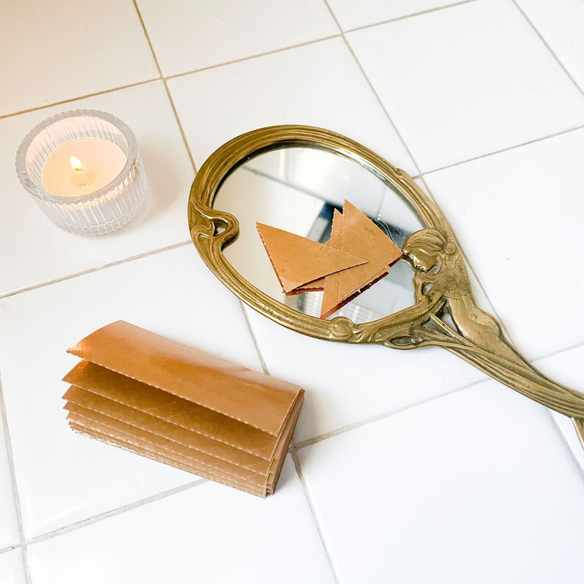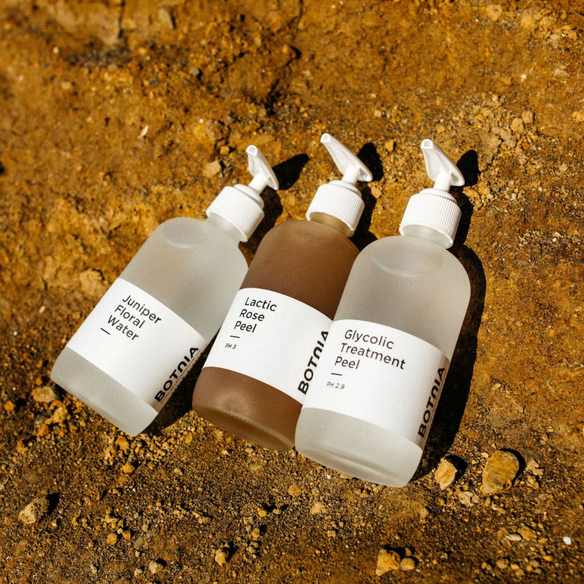
Why Botnia chooses natural vs. synthetic ingredients in your skincare
There’s a misunderstanding in the skincare industry that ingredients that aren’t natural are inherently bad. With the rise of clean skincare, there are so many factors to consider when choosing products. Cutting through the noise of marketing buzzwords, it can be hard to tell what’s truly clean if you don’t know what you’re looking for.
We prefer natural ingredients in our skincare because our bodies naturally know how to assimilate them more effectively, with less irritation and fewer side effects than non-natural ingredients. The results we saw in the treatment room were astonishing and it’s why we decided to use as many plant-based ingredients as we could when formulating our line.
Over the course of her esthetics career, when our founder Justine used chemically-driven skincare, in the moment it was more active and delivered the results she was targeting in the treatment room. But she found that in the long term, using harsh active ingredients left the skin in more detriment with barrier dysfunction, inflammation, irritation and sometimes creating conditions like acne, eczema, or other skin conditions that weren’t happening before using those actives.
In our professional back bar, we offer a few active ingredients like glycolic acid and our Lactic Rose Peel to target specific skin conditions like dry skin, deep cystic acne, bacterial acne, broken or weeping skin from eczema or psoriasis, and more. Using AHAs in combination with nourishing botanicals, we’re able to treat the skin in the moment while also helping it heal. We only offer these strong ingredients in our back bar because we’ve found that using these ingredients in a daily routine actually disrupts your skin and can cause more damage in the long run.
So what’s better, natural or synthetic?
We like to stay away from generalities like better or worse because every individual’s skin is completely unique. What might work well for one person could be a completely different story for another even if most of the traits between those people are the same. The way bodies metabolize products can vary from person to person.
What we will say about using ingredients that are not directly from natural sources and have been manipulated (like ingredients made in a green lab), is even if the constituent itself is chemically identical, you still may not get the full benefit of that ingredient more than you would from a whole plant. Take supplements and vitamins for example: it’s great to consume specific vitamins individually like vitamin C during the winter to help your immunity. But what’s much better is if you ate a whole foods diet that includes fruits and vegetables with vitamin C and all the other vitamins and minerals so that you gain the whole spectrum of benefits that can help protect your immunity more fully.
Processed ingredients we do use in our skincare like some of our preservatives and extracts that we utilize in our formulations all come from natural sources. We have researched that they have been manipulated in the least amount possible, not because we’re trying to be greener, but it’s because we’ve found in case studies on our clients and ourselves that it’s the least irritating format for the skin. These days in the lab, we’re creating our own glycerin extracts instead of sourcing them from another vendor. When we can control all of the factors, we know that we have the freshest, most potent ingredients to use in our products.
Some organic and natural ingredients can be incredibly toxic for humans, especially if used in large amounts or taken incorrectly. Just because it’s organic doesn’t mean that it’s safe! Essential oils are a great example of an ingredient that can cause rashes and irritation on the skin and can be poisonous if taken internally. It’s why we use as few essential oils as possible in our skincare and we have extensively researched the ones we use to be non-dermotoxic to the skin.
Case study - hyaluronic acid
Hyaluronic acid (HA) has been greatly debated in the skincare world. Ours is derived from glucose, soy peptone, and yeast extract and is one ingredient that comes to us from a green laboratory. Two different weights of HA are used in skincare: high molecular weight, which is a bigger molecule, and low molecular weight, which is a smaller molecule.
At Botnia, we use a high molecular weight HA and we have studied that the long-term use of a high-weight HA brings more hydration to the skin and stays there, keeping your skin more hydrated than if it were to penetrate deeper into the skin with a low molecular weight.
Another reason we like to use a high-weight HA is that if you’re using other active ingredients (like AHAs, BHAs, or retinol) with a low weight HA, it’s possible that you can be damaging your skin by allowing the active ingredient to penetrate too far into the skin potentially causing inflammation and irritation. We never want your skin to be irritated by your skincare and we believe in science by testing our products in the treatment room and seeing the results we get from using the products on real skin.
Pro tip: The most important part of using hyaluronic acid in your skincare routine is pairing it with a water-based product so that it doesn’t pull moisture from the skin causing more dehydration in the skin. Our hyaluronic acid sits underneath the top layer of the skin, holding in moisture from your toner, hydrosol, or face cream between layers of the skin, allowing it to deeply hydrate the skin from within instead of disappearing into the lower layers of the skin and being absorbed through the bloodstream.
We value knowing chemical constituents and the way that they act on the skin in both short and long-term effects to make the determination if it’s safe to use an ingredient in skincare. We do consider ourselves to be a clean skincare line, but we set our own standard that’s cleaner than most. We like to say we’re a whole plant skincare compamy because we use whole plants in our skincare!
We’ve also created a guide with questions you can ask brands if you’re unsure if you’re being misled by greenwashing. If you’re ever curious about the ingredients in our skincare, we’d love to chat with you! Send us your questions and curiosities over to botniaskincare@gmail.com or shoot us a DM on our Instagram @botniaskincare.
Xo, Botnia
